America has only one real city
We need a few more of them. How can we get them?
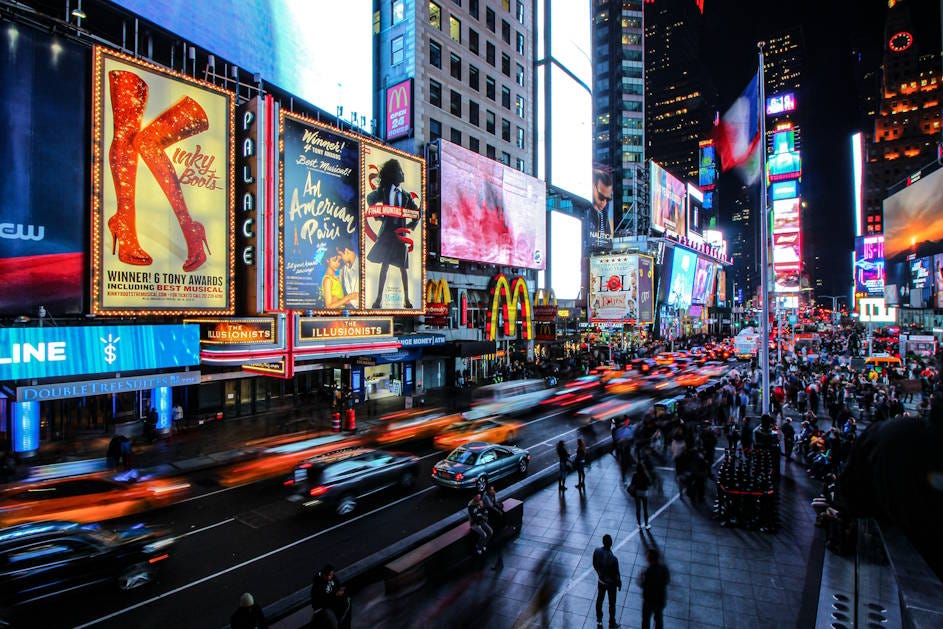
Americans who go to Tokyo or Paris or Seoul or London are often wowed by the efficient train systems, dense housing, and walkable city streets lined with shops and restaurants. And yet in these countries, many secondary cities also have these attractive features. Go to Nagoya or Fukuoka, and the trains will be almost as convenient, the houses almost as dense, and the streets almost as attractive as in Tokyo.
The U.S. is very different. We have New York City, and that’s about it. People from Chicago or Boston may protest that their own cities are also walkable, but transit use statistics show just how big the gap is between NYC and everybody else:
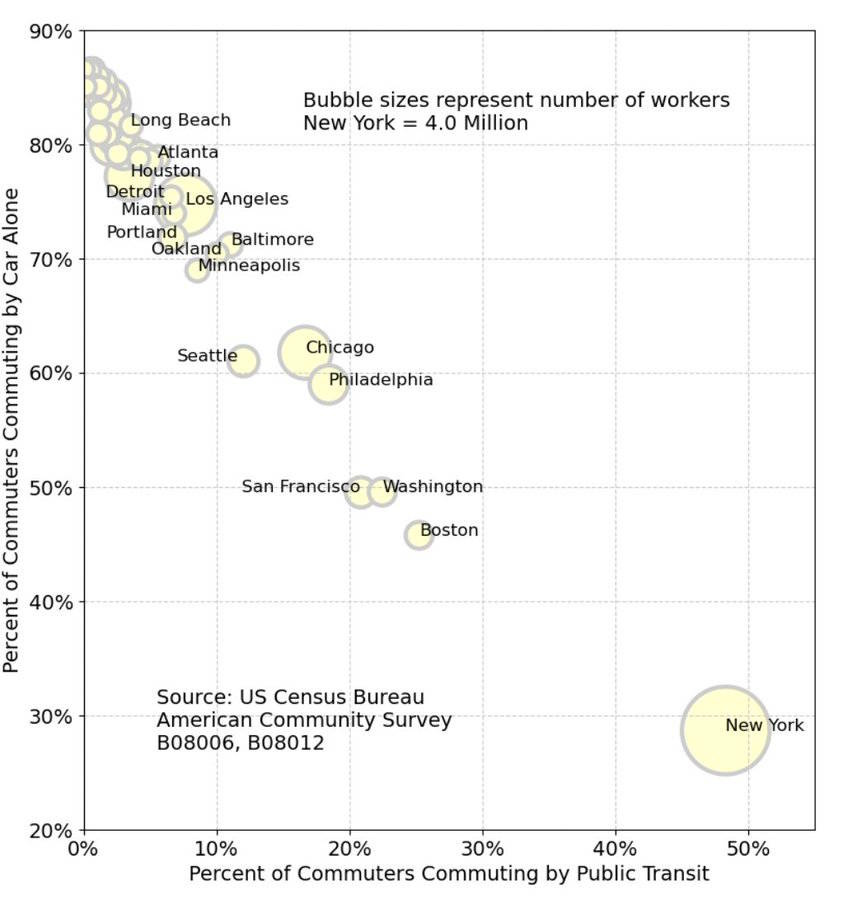
Chicago, Boston, and the rest have their old urban cores with a few train lines and some shopping streets. But for the most part, even these cities are car-centric sprawl. You can also see this in the population density numbers; New York simply towers over all the rest:1
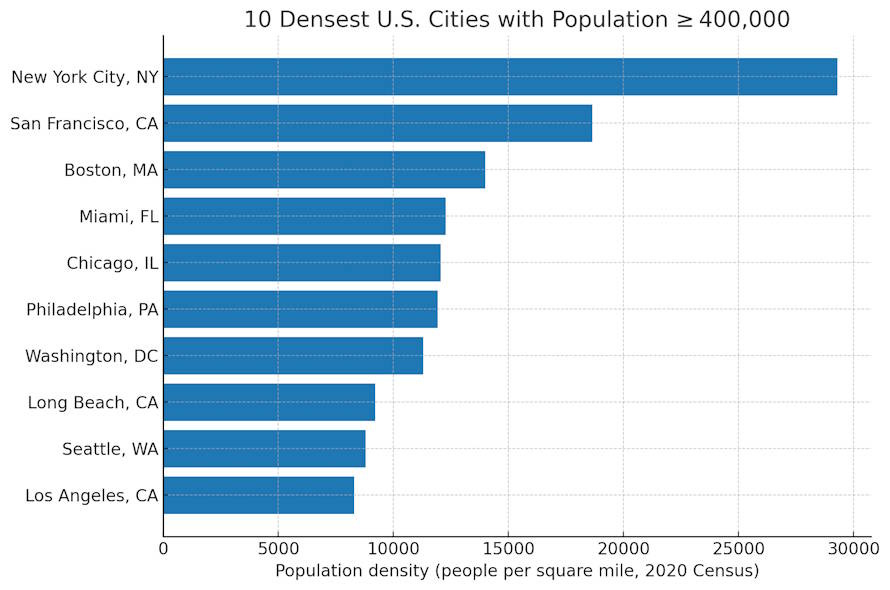
There’s simply no other town in America that looks and feels like NYC.
Some of the reasons for this are historical. NYC became a big city before the rise of the mass-market passenger car, so it had to use transit to move people around; many cities, like L.A., Houston, and Phoenix, saw their growth happen later. America’s car-friendly policies, abundant land, and desire for suburban living created the car-centric development pattern that we see in many cities in the West and South today.
But many older cities don’t have this excuse. For example, take Philadelphia. In 1910, NYC was only three times bigger than Philly; by 1960 it was almost four times as big, and by 2010 it was five times as big. In other words, Philadelphia had its big growth spurt earlier than NYC did, but its outcome in terms of walkability and transit is just much weaker, with fewer than 20% of Philadelphians using transit for their commute. Very little of downtown Philly looks like Manhattan.
The reason NYC is so much bigger than every other city in America is partly mathematical — every country tends to have one city that towers over the rest in terms of total population. And it’s partly economic — Ed Glaeser has a great essay on the industrial history of NYC. But those reasons can’t explain why NYC is so much denser than other cities. In fact, because NYC includes such an unusually large percent of its metropolitan area (44%, compared to less than 33% for other major cities), you might naively expect it to be less dense — San Francisco is just the tiny metropolitan core of the Bay Area, while NYC includes Staten Island and other outlying areas. Yet NYC is still far denser than SF or any other large American city.
The reason NYC is America’s only truly dense large city is due to policy. Other cities have restrictive zoning codes that limit floor-area ratios, impose citywide height limits, impose parking minimums, and restrict certain areas to single-family homes.2 For example, here’s a map showing just how much of San Francisco’s land (in pink) is zoned to allow only single-family homes:
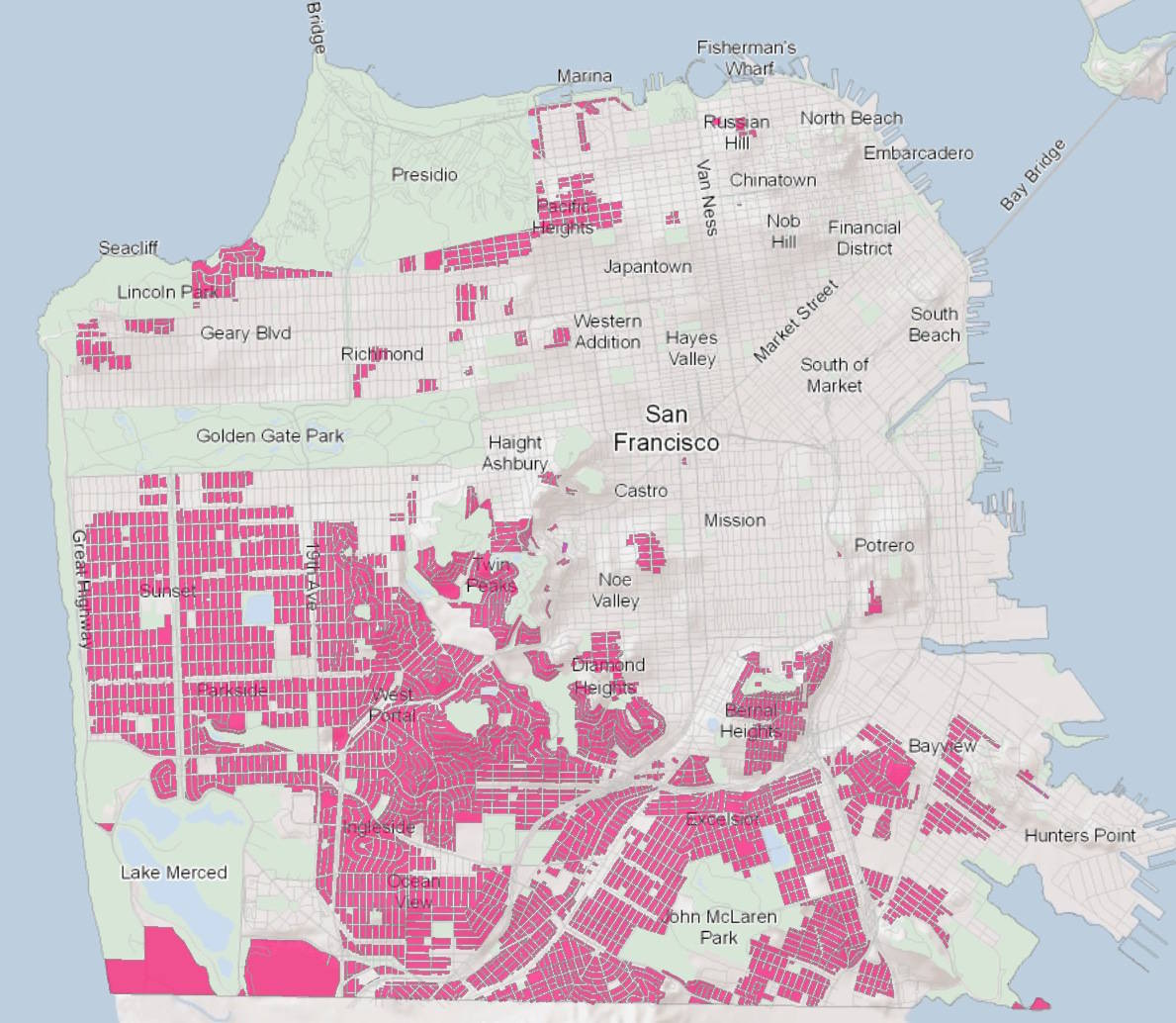
Keep in mind that this is America’s second-densest big city. New York City really stands alone, in terms of allowing tall buildings.
New York City is also unique in having an extensive subway system. In terms of miles of rail, NYC has more than other cities, but just as important is the shape of the network. NYC’s subway is a dense grid that covers all of Manhattan and much of Brooklyn; other cities tend to have commuter rail systems that connect the city center directly to outlying areas but which aren’t as useful for getting around within the central city. For example, here are train maps for NYC, San Francisco, and Boston:
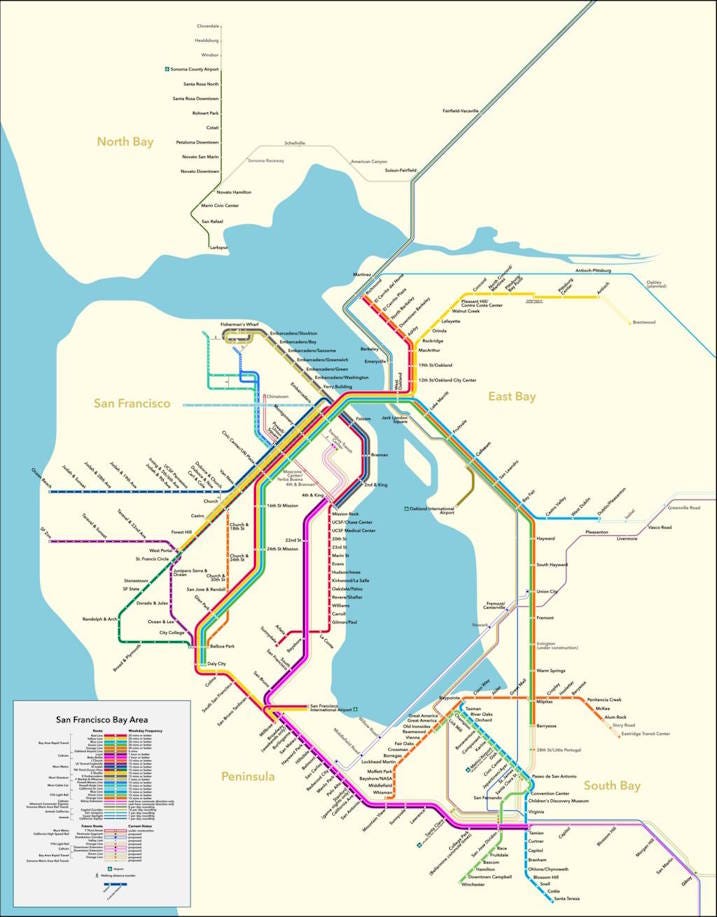
American cities are no longer able to build subways. This is partly because we’ve outlawed the cheap methods used to build them:
But a lot of it is because of the same problems of low state capacity and excessive citizen input that block every other construction project in America.
In other words, America has only one New York because no other American city wants to become like New York. Throughout the country, “Manhattanization” is a scary term that gets thrown at any developer who wants to increase density.
And yet the number of Americans who want to live in NYC is not small; it’s huge. NYC 1-bedroom rents have been soaring, even as they stagnate nationwide:
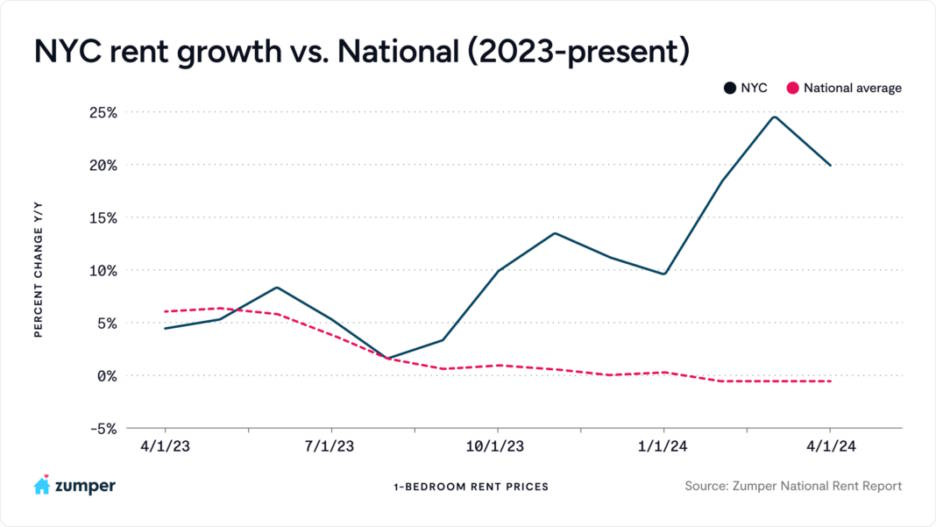
Someone wants to live in NYC, obviously. Partly that’s because of the enormous consumption benefits for the young wealthy childless people who love living in cities. And partly that’s because dense cities allow industrial clustering effects — everyone knows that if you want to hire good employees in banking, publishing, corporate law, and so on, it helps to be in NYC.
Is one city enough to hold all of the Americans who want to live in big, dense cities, as well as all of the Americans who need to live there for work? It is not. The middle class is being pushed out of NYC at a rapid clip. Americans are trying to pile into other cities, but NIMBYism isn’t letting those cities build many new houses to accommodate them; as a result, rents in other cities go up faster than wages.
America needs more than one NYC. It needs Chicago, Philadelphia, and other big old cities with existing walkable urban cores to step up and Manhattanize themselves, so that the country won’t just have one Manhattan.
How can this be done? The first step is simply to adopt NYC-style big floor-area ratios, as well as all the city’s other permissive building policies. Allow more density, and some density will get built.
The second thing these cities can do is to build more trains. Because the “cut and cover” policies that build subways cheaply are always very unpopular, this probably also means building elevated trains and surface rail. NIMBYism will have to be overcome, but that’s true of just about anything that anyone wants to get done. Cities should also focus on building trains that allow their residents to get around the city, rather than just get into and out of the city; this means constructing trains in a grid or web pattern.
Another idea is that if other big cities can reduce crime, their citizens will be less apprehensive about allowing more density and transit. NYC is one of America’s safest big cities, with a homicide of less than 4 per 100,000 population as of 2024. Chicago, in contrast, was at 17.5, and Philadelphia at 16.9. San Francisco has a fairly low homicide rate of 6.4, but it still has a big problem of public disorder, including fentanyl use, homeless encampments, store raids, and general lawlessness. Reducing this public disorder — as well as crime in general — would make it far more appealing to live in a dense area, to walk down shop-lined streets, to take the train, and so on.
Some Americans instinctively recoil from calls to make more cities like NYC. They prefer their single-family homes, their cars, their strip-malls and lawns. Fine. But those people should consider that if America had one or two more New York-style cities, the people who want to live in that sort of city would move there, freeing up more space for everyone else.
The U.S. needs both dense cities and suburbs, in order to satisfy all the different Americans who want different lifestyles. We are overweight on Los Angeles type cities, and underweight on NYC type cities. We need to restore balance, by converting more of our big old cities into gleaming new Manhattans.
This is not true of, say, Japanese cities. Osaka is actually about twice as dense as Tokyo. That’s partly an artifact of how density is measured; Tokyo is more of an office town, where people commute in from residential areas outside the city proper.
NYC has a few other innovative policies that allow it to achieve greater density. These include density bonuses, special-purpose districts, as-of-right development, and the ability to sell unused floor-area ratio so that nearby buildings can use it.


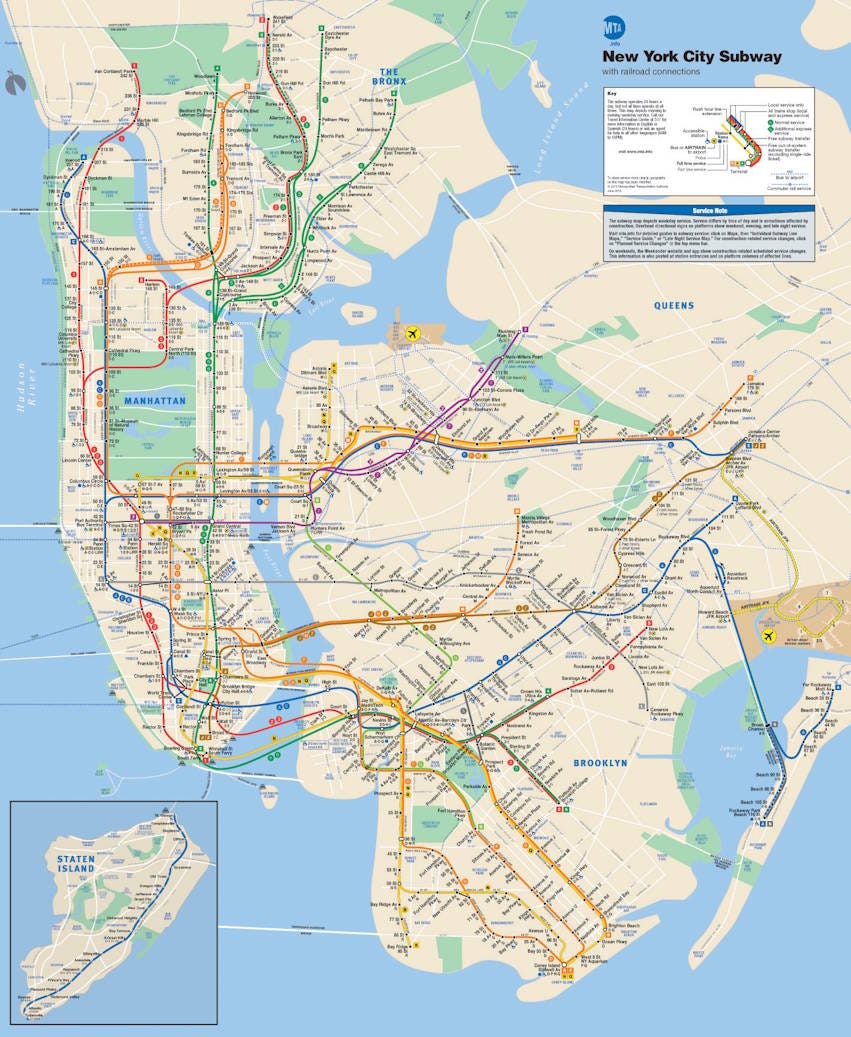
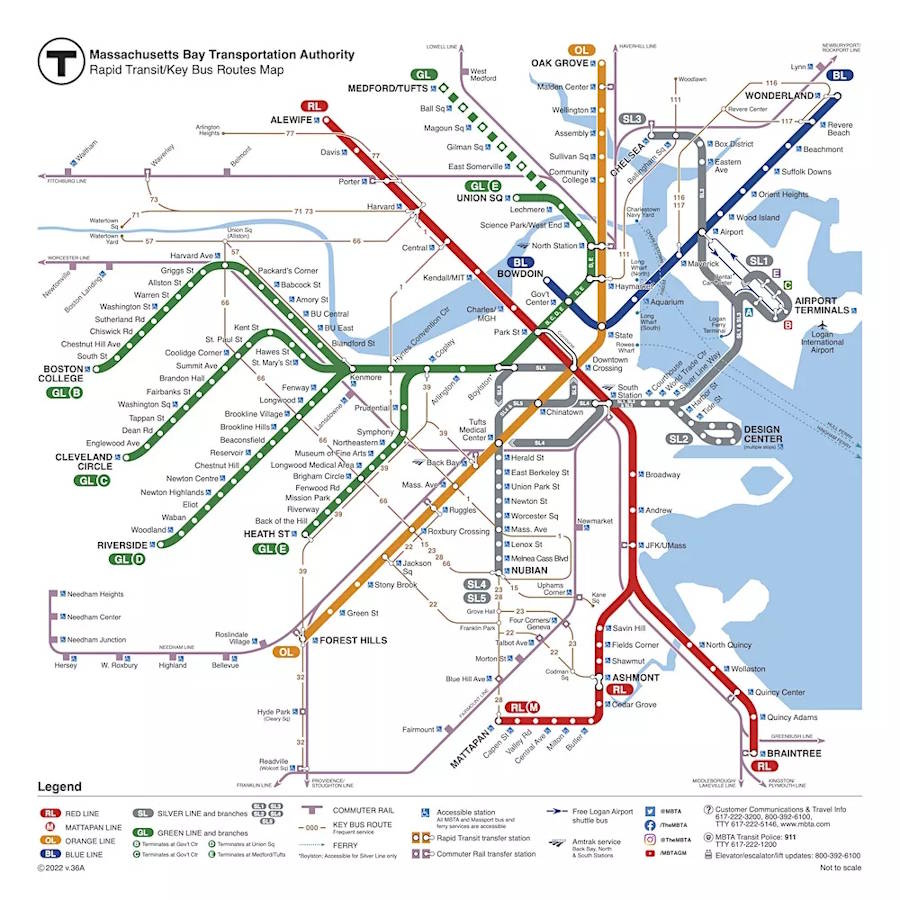

New York City is the only one in the US where owning an automobile reduces one's mobility.
Here's an example; two days ago I rode the Q train, some 18 miles from my UES neighborhood to Sheepshead Bay to join friends on a boat excursion to observe whales (Humpbacks), a sportin' on the briny deep a few miles off the coast of Coney Island. The subway journey in each direction was about 40 minutes. Driving that same route by auto would take *twice* as long at a minimum and the tolls cost more than my subway fare.
During my journey I got to see more human faces than most Americans see in a month. I even got to exchange pleasantries with several of them. In the grim political climate of these times this experience is deeply settling.
This is a great post.
I think America is also sleeping a bit on trams. They are a feature of European cities and they work.
The way you know you're in an actually wealthy country vs. "a country with some wealthy people" is whether the rich people in that society take public transport.
Bankers in Zurich and Geneva take the metro and ride the train. They have very nice, expensive cars, but those are for driving up to the mountains, not getting around the city.
Or compare Singapore to Manila. Manila has wealthy people with nice cars and drivers. It also has 3 hour traffic jams. The public transit in Manila is inadequate and under funded.
Singapore, by contrast, made an affirmative choice to favor public transit. The Singapore metro system is big, clean, and works well. The Singapore government makes it very expensive to own a car. (100% tax on the car price + a -50,000 SGD certificate that allows you to own a car.)
As a result, wealthy people in Singapore generally take public transport.
Indian cities showcase this a lot. As India has gotten richer in the past 3 decades, a lot more people can afford cars. Kochi in Kerala built a super nice elevated train line in 2013 and it is great. Meanwhile, other cities in India, such as Guwahati in Assam, have not built public transit. The result is becoming like Manila; endless traffic jams as more cars cram into the same streets. Also, in Guwahati's case, it has become the most polluted city in the world as of 2024.